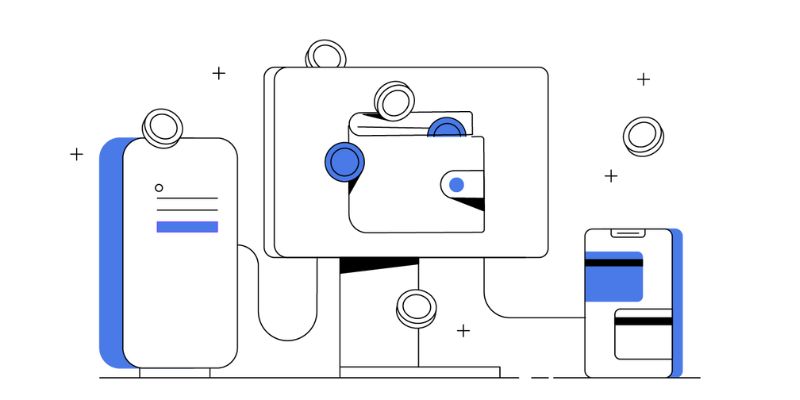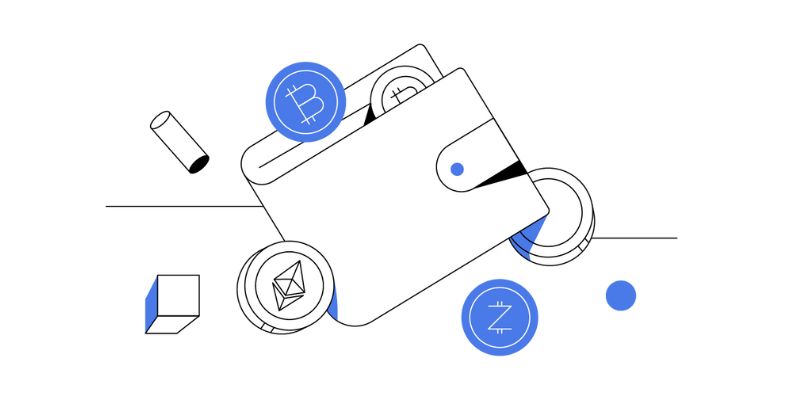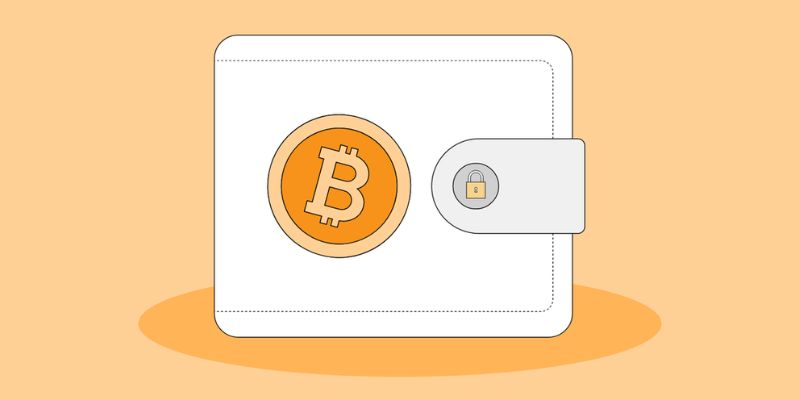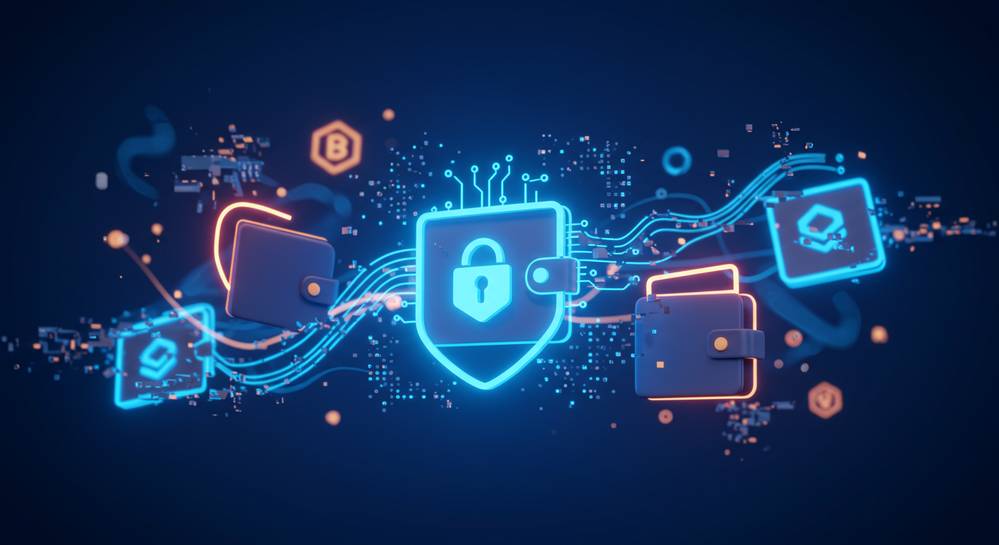Mobile vs Desktop Crypto Wallets: Which Secures Your Digital Gold?
You’re sitting on a stash of digital gold — your cryptocurrency. But where do you keep it? With mobile vs desktop crypto wallets, the decision is no small deal. Think of it like choosing a bank. Your choice defines not just how you use your crypto, but also how well you sleep at night knowing it’s safe. Mobile wallets offer a quick tap-and-go convenience, while desktop wallets stand like a vault guarding your assets. Each has its own powers and kryptonite, which we’ll uncover, giving you the X-ray vision needed to make the smart choice. So, let’s dive in and secure your digital treasure.
Understanding the Landscape of Cryptocurrency Storage Options
Overview of Hot Wallets: Mobile versus Desktop
When thinking about where to keep your digital money, you must pick between mobile or desktop hot wallets. Both let you access your crypto fast.
Mobile wallets let you manage crypto anywhere. They fit in your pocket and are great for on-the-go use. Desktop wallets need a computer and are okay at home or work. But, they can’t move with you like mobile wallets.
A mobile wallet gives quick payments and trading. Yet, watch out — they can be less secure. Hackers or thieves could get into your phone.
On computers, desktop wallets often have better safety features to guard your coins. They use strong firewall and antivirus tools that phones may not have. Still, desktops can get viruses or malware which can steal your stuff.
Always back up your wallet. No matter mobile or desktop, this keeps your crypto safe. If you lose your device, you won’t lose your money.
The Role of Cold Storage Desktop Wallets
Now, let’s talk about cold storage on desktops. This is like a super safe that’s offline. It protects coins from online threats. No net means no hack!
Desktop cold wallets are a top pick for keeping a lot of crypto safe. They’re perfect when you don’t need to touch your crypto often. Only plug in your desktop when you need to make a big transaction.
Remember, if your cold wallet’s computer breaks, you could lose your crypto. So, you must handle it with care. It’s smart to also have a copy of the wallet in another safe place.
Hardware wallets are like cold wallets. They are like USB sticks but for crypto. You plug them into a computer to get to your coins.
Compare them to hot wallets on your phone, and you’ll see why they’re safe. They’re not always on the net ready for attacks. But, use them with a good computer that’s free of viruses.
In the end, picking between mobile and desktop wallets comes down to how you use your crypto and how much you want to protect it. Mobile wallets are great for everyday use, and desktop wallets, especially cold ones, are best for long-term, bigger amounts. Remember, check your wallet’s safety often and always keep a backup!

Optimizing Security in Mobile and Desktop Wallets
Encryption and Mobile Wallet Vulnerabilities
Mobile wallet security is key to keeping your coins safe. Let’s break it down. A mobile wallet must encrypt your data well. That’s like putting a good lock on your digital gold. But, smartphones can fall prey to theft or hacking. This puts your wallet at risk. Good mobile wallets fight back with strong security. They use tricky codes to guard your coins. Yet, always update your mobile app. Old versions might not be as safe.
Next up, imagine you use public Wi-Fi to check your balance. Bad idea! Hackers can spy on unsecured networks. They could sneak a peek at your wallet. Stay safe by using your own data or a secure Wi-Fi network. Also, be careful about what apps you download. Some could be wolves in sheep’s clothes, ready to swipe your crypto.
Desktop Wallet Security Measures and Updates
Now, let’s talk desktop wallet advantages. Picture your desktop as a beefy metal safe. It’s sturdy, sure. But is it safer than your mobile? Some say yes. Desktop wallets are less likely to be lost or stolen. They’re not in your back pocket while you ride the subway. There’s a catch, though. If your computer gets a virus, your wallet could be in trouble. Keeping your desktop clean from these digital bugs is a must. Just like you’d dust off an old treasure chest.
Best desktop wallets for crypto tend to update often. This means better guards against hacks. You get new shields as threats come up. Remember, a good desktop wallet keeps you in the loop. It reminds you to download the latest safety measures. But if you ignore these alerts, it’s like leaving your safe’s door cracked open. Oops!
Top-notch desktop wallet security measures include asking for two-factor authentication. Double-checking who comes in your wallet is like having a guard ask for an ID at the door. Super important. Also, desktop wallets can make backups easier. Think of it like having copies of your house keys. If one gets lost, you’re not locked out.
Hardware wallets vs software wallets? Hardware wallets are usually thumb-sized gadgets. They can work with both mobile and desktop, offering a strong layer of security. Yet, they can cost a bit more.
So, when deciding between a mobile or desktop wallet, weigh your options. Mobile gives you quick access and the chance to manage crypto on the go. Desktop might seem slower but offers some hefty security perks. Each has its own mix of pros and cons of mobile wallets.
In short, keep your software updated, your networks secure, and always, always guard your private keys like they’re real gold. Because in the world of crypto, they are.

Navigating User Experience and Accessibility in Crypto Wallets
The Convenience of Mobile Wallets and UI/UX Considerations
Think about using your phone for everything. It’s your camera, map, and even wallet. Mobile crypto wallets fit this trend, letting you trade and pay on the go. They are always with you, tucked away in your pocket, ready at a tap. Have you ever been in a hurry but needed to make a quick crypto payment? With a smartphone crypto wallet, it’s as quick as grabbing your phone. That’s mobile wallet convenience for you.
User experience, or UX, makes or breaks a mobile app. A good crypto wallet app has easy navigation, clear options and doesn’t confuse you. That’s what you get with the right one — a cool interface you can use without a tech-savvy brain. Security is also a big talk point. All mobile wallets aren’t equal here. Some might leave your digital gold less safe. But relax, with strong passwords and regular updates you keep your coins snug as a bug.
Desktop Wallet Features and Reliability
Now let’s swap to desktop wallets. They’re like a trusty old safe — tough and reliable, sitting on your computer. Is desktop crypto storage safer? It could be. You’re less likely to lose your desktop to a pickpocket, right? Desktop wallets shine when it comes to features. They often offer more complex settings than their mobile peers. Plus, their larger screens make it easier to deal with detailed crypto matters.
With a desktop wallet, updates and backups can be a set-and-forget deal. A big yes for peace of mind. But what about encryption, not just any kind; wallet encryption is like a secret code that guards your crypto. Desktop wallets use top-notch encryption to keep unwanted guests out. They also offer cold storage options, which means your crypto sits offline, away from hackers’ prying eyes. You can’t get much safer than that.
One more thing, ever heard about two-factor authentication? It’s like a double lock on your wallet. Both mobile and desktop wallets use it to add an extra layer of security. And yet, there’s always a trade-off. Desktop wallets need updates. You have to do these yourself to stay ahead of hackers. They also aren’t as quick on the draw for payments on the fly. Where’s your desktop when you’re out and about? Exactly.
Knowing all this, finding the right wallet feels less like a trek through the wilderness. With a map of mobile wallet pros and mobile wallet cons, plus desktop features and security savvy, you’re ready to pick your path. Remember to choose what fits your life best. It’s not just about cool tech; it’s about your peace of mind and your pocket’s safety.

The Balance of Convenience and Risk in Crypto Management
Pros and Cons of Managing Crypto on the Go with Mobile Wallets
When you’re out and about, managing your crypto can be a breeze with mobile wallets. These are apps on your phone, easy to use, and they keep your digital cash close. With a smartphone crypto wallet, you can send and receive funds fast—no need to lug a laptop. You tap a few buttons, and there! Payment sent.
But it’s not all sunshine and rainbows. These wallets face risks, like if your phone gets lost or hacked. Mobile wallet security must be top-notch to make them safe. Overlooking this can mean saying bye-bye to your digital gold. And here’s the real kicker: mobile wallets can be less secure than desktops.
Why? Smartphones juggle many tasks and hop from network to network. This can open doors for sneaky cyber-thieves. On the flip side, desktop wallets sit tight in one place. With fewer security holes, they’re a tough nut to crack.
Secure Crypto Transactions and Private Key Storage Solutions
Talking about keeping your coins safe, secure crypto transactions and storing your keys are key. Think of it like this: your private keys are like the keys to a treasure chest. If someone grabs them, they snatch your treasure. So how do you keep these keys under lock?
For starters, always pick wallets that don’t skimp on crypto wallet encryption. This is like a solid shield guarding your keys. And then, there’s two-factor authentication wallets. They ask for a password plus another proof, like a code that changes all the time. It’s like adding a deadbolt to your treasure chest.
Now, you might wonder, “Is desktop crypto storage safer?” The short answer: often, yes. Desktop wallet advantages include being tougher to invade, and less likely to get lost or stolen than your phone. They can also use heavy-duty encryption that would slow a phone down.
Mobile wallets do win for convenience and on-the-go use, though. They’re champs at quick trades, and with mobile wallet multi-currency support, you can handle all your coins in one place. Plus, with the mobile wallet UI/UX getting friendlier, anybody can master them with a few swipes.
While mobile app wallets shine in accessibility, it’s crucial to make sure they’re updated. Updates patch up any mobile wallet vulnerabilities found. Failing to keep up with this can leave your funds hanging by a thread. Desktop wallets, while not as mobile, are sturdy in their own right. They often get robust updates that squash sneaky bugs.
So, there it is. Mobile wallet convenience is great when you’re out. But for the ironclad defense of your crypto loot, desktop solutions can offer more. The trick is figuring out which mix works best for you. It’s like choosing between a nimble scooter and a fortified tank. Each has its time and place on the road of crypto management.
In this post, we looked at how to keep crypto safe and easy to use. We started with the different storage options. Mobile wallets give you access everywhere, while desktop wallets offer more control. We then dived into security, looking at why encryption matters for mobile wallets and how to keep desktop wallets up to date and secure.
We also explored how to make using crypto wallets simpler and talked about why the design can help or hurt. Mobile wallets can be super simple to use, while desktop ones might offer more tools and dependability.
Lastly, we balanced the easy parts and risks of managing crypto. Mobile wallets let you trade on the move but watch out for risks. Desktop options keep your keys safer, but they can be less convenient.
So, remember: your crypto is as secure as you make it. Pick the right wallet, keep it updated, and stay safe out there. Your digital coins matter, and so does your peace of mind. Choose wisely and happy trading!
Q&A :
What are the main differences between mobile and desktop crypto wallets?
Mobile crypto wallets are applications that can be installed on a smartphone, offering convenience and accessibility as they allow users to access their cryptocurrencies anytime and anywhere with an internet connection. In contrast, desktop wallets are software programs that reside on a personal computer, providing enhanced security features and a more robust set of tools for managing digital assets. The primary differences lie in portability, user interface, security, and functionality.
How do security measures compare between mobile and desktop crypto wallets?
Security measures can vary significantly between mobile and desktop crypto wallets. Desktop wallets usually offer a more secure environment due to the reduced risk of exposure to unsecured mobile networks and the potential for additional security layers like encryption and two-factor authentication. Additionally, desktop environments are less prone to theft or device loss. However, mobile wallets are catching up with built-in security features such as biometric locks and secure enclave technology.
Are there any advantages of using a mobile crypto wallet over a desktop one?
Mobile crypto wallets offer several advantages, including the convenience of conducting transactions on the go, quick access to funds for trading or payments, and the use of QR codes for easier address input. Additionally, some mobile wallets provide location-based services, such as finding nearby users for in-person transactions. For users prioritizing accessibility and ease of use, mobile wallets may be preferable.
Can I use the same crypto wallet on both mobile and desktop platforms?
Many crypto wallet developers provide cross-platform compatibility, allowing users to employ the same wallet on both mobile and desktop devices. This interoperability is especially convenient for managing assets across multiple devices. However, it’s important to ensure that the security standards are consistently maintained when using a wallet on different platforms.
What should I consider when choosing between a mobile or desktop crypto wallet?
When deciding between a mobile or desktop crypto wallet, consider factors such as your lifestyle, security concerns, and the types of transactions you’ll be performing. Frequent travelers or those who value convenience might lean towards a mobile wallet. In contrast, individuals requiring advanced features and those who transact large amounts of crypto may favor the security and functionality of desktop wallets. It’s also vital to assess the wallet’s supported cryptocurrencies, user experience, backup options, and the reputation of the provider.



